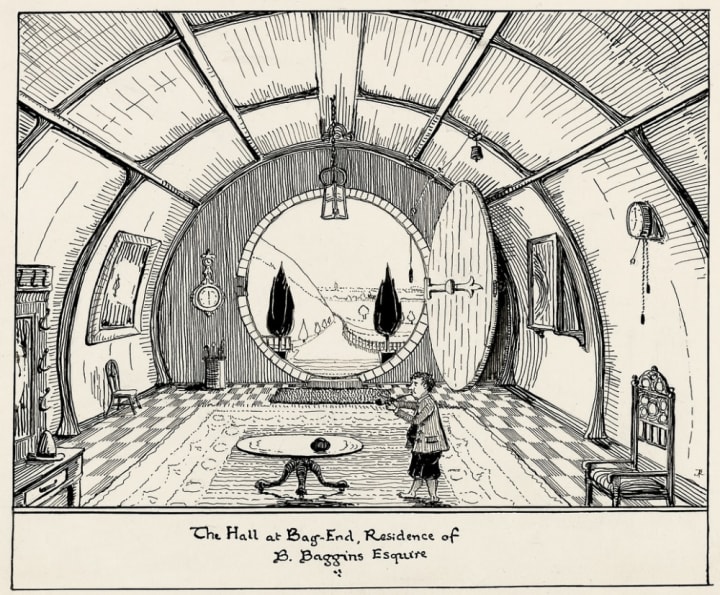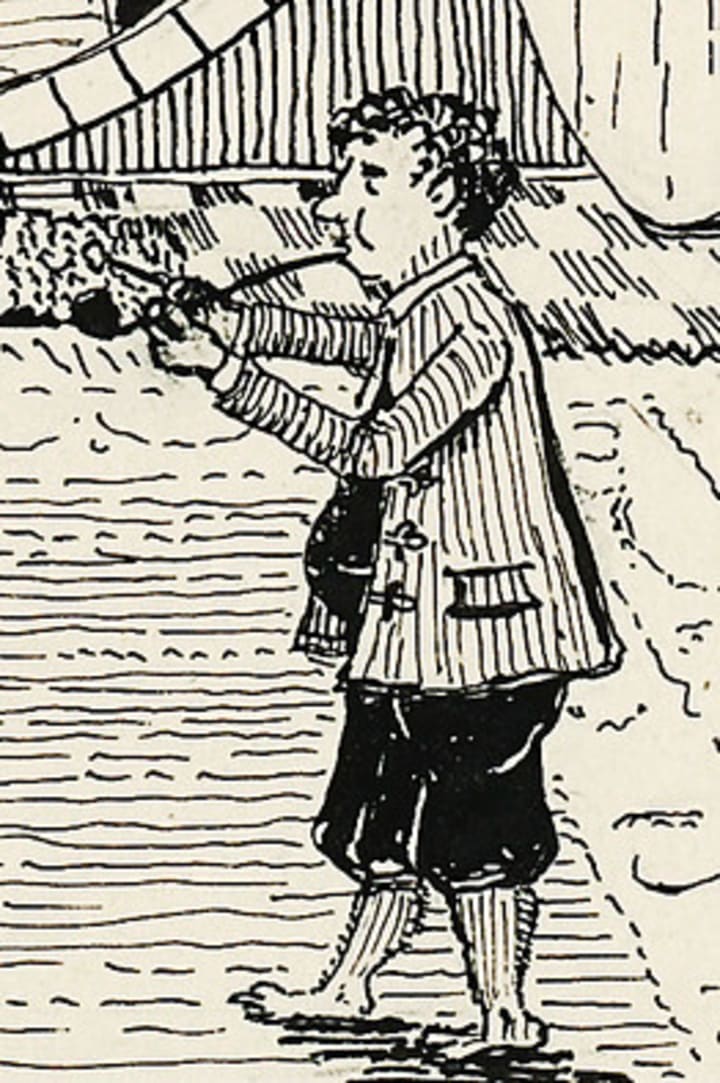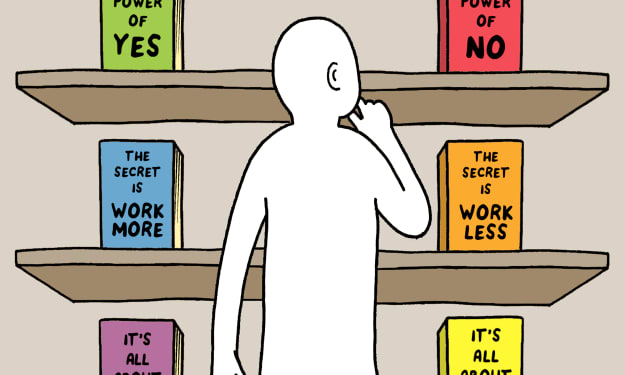On the Joy of Being Read To
Being Read “The Hobbit” Before Bed At the Age of 29

Like thousands of children, the first book I read that felt like a “real” book was The Hobbit.
Well, actually, my mom read it to me.
I was 9 years old, living in Northern Ontario, Canada. Although neither of us really knew anything about the book, my mom, a schoolteacher, decided to give this classic a try. With my childhood delight in being read to, I was up for it.
Being read The Hobbit at age 9 gave me two important experiences: the delight of delayed gratification, and the beauty of a shared narrative experience.
Being read The Hobbit at age 29 taught me another lesson, just as important: you’re never too old to be read to. And it never gets less fun.
The Hobbit

In addition to being the longest book I’d read up til that point (long enough not to be called a “chapter book” but instead—gasp!—a novel) The Hobbit was probably the first book I read with no pictures. Plenty of editions do contain illustrations, from Tolkein’s own lovely drawings to Alan Lee’s classic artwork, but the version my mom bought only had the requisite map at the front and Tolkein’s spooky drawing of Smaug on the cover.
My mom, by the way, pronounced Smaug like “Smog.” None of this “Smowg” business. (I won’t even get into her attempts to pronounce “Hermione” when we read Harry Potter the next year.) All of the character and location names received the long folksy vowels of my mom’s Canadian accent.
These pronunciation differences, together with the lack of illustrations and the fact that we read the book before Peter Jackson’s famous films were released, function to separate The Hobbit in my imagination from the rest of Tolkein’s Middle Earth canon including The Lord of the Rings. I’m really grateful for this. I feel like I had something of the experience of the book’s first readers back in 1937.
Far from British or American culture, in the middle of Northern Ontario, for me and my mother a “hobbit” was a truly strange little creature. The story itself felt like a little hidden gem that we’d discovered by accident, together. We were experiencing the story together as if no one else in the world knew about it.
I felt like Bilbo was my friend. Each of the silly dwarves were my companions, Gandalf was my wizard, Smaug’s treasure my own. Middle Earth was my playground. I transported there every night, from the comfort of my bed, in Canada, in the 1990s.
The Ritual

I was a precocious reader, and my mom, being an elementary school teacher, had no shortage of books at home. I steamed through all the picture books, readers, and chapter books very early, being both read to and reading on my own. Most books I could finish fast. By about the age of nine, I was ready to savor the pleasure of a longer work.
Every night before bed, my mom would read me one chapter from The Hobbit. Just one. That’s important. No binging.
Every stage of Bilbo’s journey had precisely the pacing effect on me that Tolkein intended. One night, it was the unexpected party. The crazy tangle of dwarves ambushing poor Bilbo’s perfect, comfortable house, making a huge mess, telling strange tales of faraway lands. Just as the adventure seems to be about to commence, my mother closed the book. Somehow expecting me to go to bed with all these characters, all this adventure in my imagination, she left the room, taking the book with her.
I labor through the next day, going through the motions, thinking of nothing but hobbits and dwarves and holes and beards. Then, after what feels like interminable waiting, I’m in bed again, on the road with Bilbo and the dwarves. Gandalf’s vanished. The companions get themselves in a horrible pickle when they come across three huge, hungry trolls. And just as things are heating up, again my mother closes the book. “No more tonight,” she says.
I have to wait. Cliffhanger after cliffhanger, adventure after adventure, chapter after chapter, we make our way through The Hobbit.
There are 19 chapters. Accounting for the odd day where one of us is too tired to read, or the pace of our night just goes in a different direction, it takes us, let’s say, 23 days to read the book.
The experience defines our month, gives a continuity to our lives, strings together our own quotidian adventures with a grander one. It gave us magic.
Only one other book had the same effect: Harry Potter and the Philosopher’s Stone. These two works will be forever paired in my heart.
Why Read Out Loud?
Sitting back and listening to someone read aloud does something interesting to you and to the story.
It puts you in time.
When reading on your own, in your head, you kind of lose yourself to time. Especially if the book is engaging. This is one of the great pleasures in life and there’s nothing wrong with it at all. Some of my best reading experiences were when I plowed through 100 pages of a book, not realizing I’d done so until I checked the clock and it was somehow 3 am. But reading out loud is like listening to music. You can’t fast forward through a Beethoven symphony. You have to sit and focus.
What do you get when you slow yourself down and listen to the words of a story out loud? You get to savor each event. You get to hear the dialog just like the characters themselves do. You inhabit the pacing of the actions. Bilbo and the dwarves stuck outside the side entrance to the Lonely Mountain really feels interminable. Bilbo's conversation with Smaug really feels as tense as life and death. And when you come to the cliffhanger that ends the chapter, you feel like you’ve earned it. Moreover, the interval between you and the next chapter, which might be a day, maybe two, feels like it’s made of the same stuff as the reading itself. Suddenly your whole day feels like a part of the story. You never stop reading, because waiting is reading too.
What else does reading out loud do? It gives you a shared experience. You’re sitting physically close to someone you care about (in my case, my mom). Your respective days have led to the same conclusion. You’ve been thinking about the same thing all day long. You share the same excitements, fears, joys, and sorrows that the story contains. You get to hear your loved one’s voice saying interesting words for an hour straight.
Finally, you’re echoing the original story experience, participating in something that humans have been doing ever since we learned to speak, and since fire allowed us to stay up at night: you’re participating in storytelling.
Today

After my mom read me The Hobbit and Harry Potter, I was ready to tackle books on my own. I finished my apprenticeship and started my reading life in earnest.
Now I’m twenty-nine, and I have twenty years of solo experience. But for a while I, subconsciously, had felt something lacking. Something I couldn’t put my finger on until, by chance, one of my close friends suggested reading The Hobbit out loud. Turns out she too had had the book read to her. Wouldn’t it be fun to resurrect this old experience and read out loud again?
At the age of twenty-nine, I found myself plunged back into this kids' fantasy classic. The ritual was almost exactly the same: pajamas, night time, one chapter a night. Instead of my mom, it was my friend.
I decided then and there, lying in bed and listening to my friend’s voice, that being read to is not an experience that should only be for children. Grown ups should get to have this experience, too. And I don’t mean simply being on the other end of it as a parent. Reading to your kid is surely a joyous thing, but you should get to have someone read to you.
Call to Action
So here’s what you should do. Find a friend who’s a book lover. Or a roommate who wants to take a break from binging Netflix each night. Or if your significant other is up for it, suggest it to them. Just bring up the subject like it’s an every day, normal thing.
“Hey, this might sound a little weird, but do you want to read The Hobbit out loud?” The words might feel a little awkward, you might be worried that they’ll laugh at you.
But what they’ll probably say is, “Hey, sure! My mom used to read that book to me when I was a kid.”
About the Creator
Eric Dovigi
I am a writer and musician living in Arizona. I write about weird specific emotions I feel. I didn't like high school. I eat out too much. I stand 5'11" in basketball shoes.
Twitter: @DovigiEric






Comments
There are no comments for this story
Be the first to respond and start the conversation.